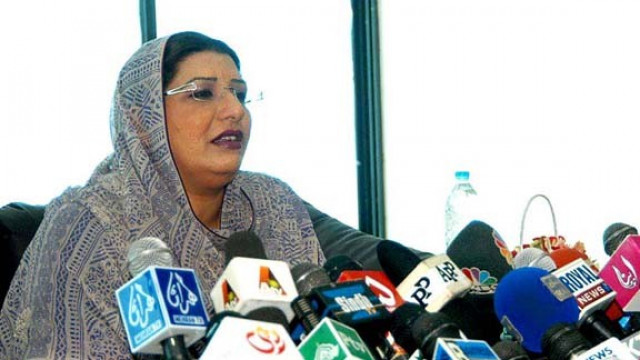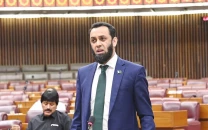Road-map to empower rural women on cards
Firdous Aashiq Awan says the elite have always ignored the issues faced by rural women

This was stated by Federal Minister for Women Development Firdous Aashiq Awan while addressing a seminar here on Thursday.
The ceremony was organised by the Ministry of Women Development in collaboration with the United Nation Development Programme (UNDP) and the Department for International Development (DFID), UK. Peter Hawkins, head of the Governance Group of DFID, Jean Luc Stalon Deputy Country Director of UNDP and representatives of civil society were present on the occasion.
Awan said that the elite class has always ignored the issues faced by rural women and whatever investment has been made for women empowerment in the country has always been directed towards urban areas.
“Rural women comprise 70 per cent of country’s population and should be given importance while designing any project, both by the government and donors,” she stressed.
On the occasion, she announced that her ministry plans to evolve a road-map to effectively address the problems faced by women in the country.
“The road-map will be according to the religious, social and cultural realities of the country and will be aimed at making women active contributors to the Pakistani economy,” she said.
Furthermore, civil society representatives urged the government to ensure effective implementation of laws made to protect women.
They were of the view that since the inception of the country, women were struggling to get justice and fighting a war to get their rights.
Addressing the participants, Peter Hawkins said, “The scale and scope of the problem of violence against women in Pakistan requires a holistic and comprehensive response from all the stakeholders.”
He added, “We are determined to work towards ending
such violence and will continue to play our part in supporting important initiatives such as the ones conducted through Gender Justice and Protection Project.”
During the event, participants were informed that the United Nations Development Fund had spent $2.98 million under its Gender Justice Programme (GJP) (2007 to 2011) to decrease the incidents of gender-based violence in Pakistan.
GJP project is delivering in 93 districts across the country through 41 implementing partners out of which nine are government agencies. The major forms of violence against women which the project is working to address in different parts of the country are acid crimes, stove burning, domestic violence, women trafficking, exchange of women to settle disputes, honour killing, denial of education in conflict zones, denial of inheritance rights, denial of rights in a marriage contract, discrimination against women prisoners, violation of minimum wage award in relation to female farm workers, violence against women, in relation with substance abuse and sexual harassment at work place.
The GJP has so far announced three rounds for inviting proposals from government agencies and civil society organisations. The first two rounds requested proposals in five priority areas: advocacy and awareness, capacity building, action oriented research, legal aid and upscaling promising practices. The third round which was announced this year had a specific focus on legislation and implementation of affirmative laws to protect women against violence.
Published in The Express Tribune, December 10th, 2010.



















COMMENTS
Comments are moderated and generally will be posted if they are on-topic and not abusive.
For more information, please see our Comments FAQ